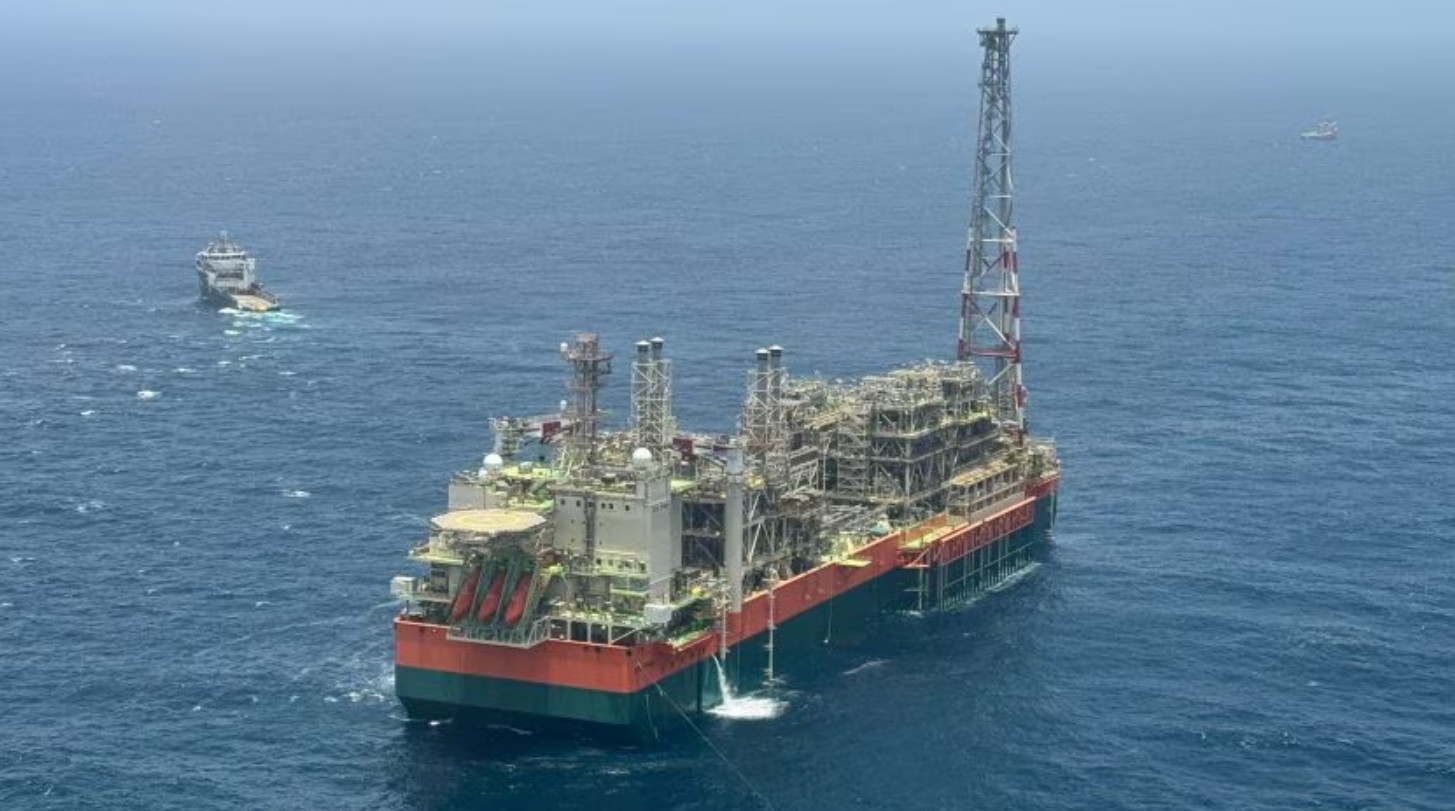The floating production storage and offloading (FPSO) vessel, a key component of the Greater Tortue Ahmeyim (GTA) Phase 1 LNG development, has arrived at its final location offshore on the maritime border of Mauritania and Senegal.

The FPSO vessel is currently being moored at the site 40km offshore in a water depth of 120m. It will be operated by bp, on behalf of the project’s partners: bp, Kosmos Energy, PETROSEN and SMH. The project will produce gas from reservoirs in deep water, approximately 120km offshore, through a subsea system.
Following completion of its construction at the COSCO Qidong Shipyard, China, the FPSO has travelled more than 12,000 nautical miles to the GTA site.
“bp is investing in today’s energy system - and tomorrow’s too, and GTA Phase 1 represents this investment in action.” - Dave Campbell, bp’s senior vice president, Mauritania and Senegal
Dave Campbell, bp’s senior vice president, Mauritania and Senegal said: “bp is investing in today’s energy system - and tomorrow’s too, and GTA Phase 1 represents this investment in action.
“And this is a huge landmark step for the project, an innovative LNG development that is leading the way in unlocking gas resources for Mauritania and Senegal. The FPSO vessel has travelled halfway around the globe and its safe arrival and installation is testament to the resilience, skills, teamwork and huge effort of all the partners involved. We are now entirely focused on safe completion of the project as we continue to work towards first gas.”
The GTA Phase 1 development is expected to produce around 2.3 million tonnes of LNG annually for more than 20 years. It is the first gas development in this new basin offshore Mauritania and Senegal. With wells located in water depths of up to 2,850m, the GTA Phase 1 development has the deepest subsea infrastructure in Africa. The multibillion-dollar investment has been granted the status of National Project of Strategic Importance by the Presidents of both Mauritania and Senegal.
The FPSO will have up to 140 people on board during normal operation. With an area equivalent to two football fields and 10-storeys in height, the FPSO is made of more than 81,000 tonnes of steel, 37,000m of pipe spools and 1.52 million meters of cable.
The FPSO is expected to process over 500 million standard cubic feet of gas per day. It will remove water, condensate and impurities from the gas before transferring it via pipeline to the Floating Liquified Natural Gas (FLNG) vessel at the Hub Terminal approximately 10km offshore. At the FLNG vessel, the gas will be cryogenically cooled, liquefied and stored before being transferred to LNG carriers for export, while some is allocated to help meet growing demand in the two host countries.